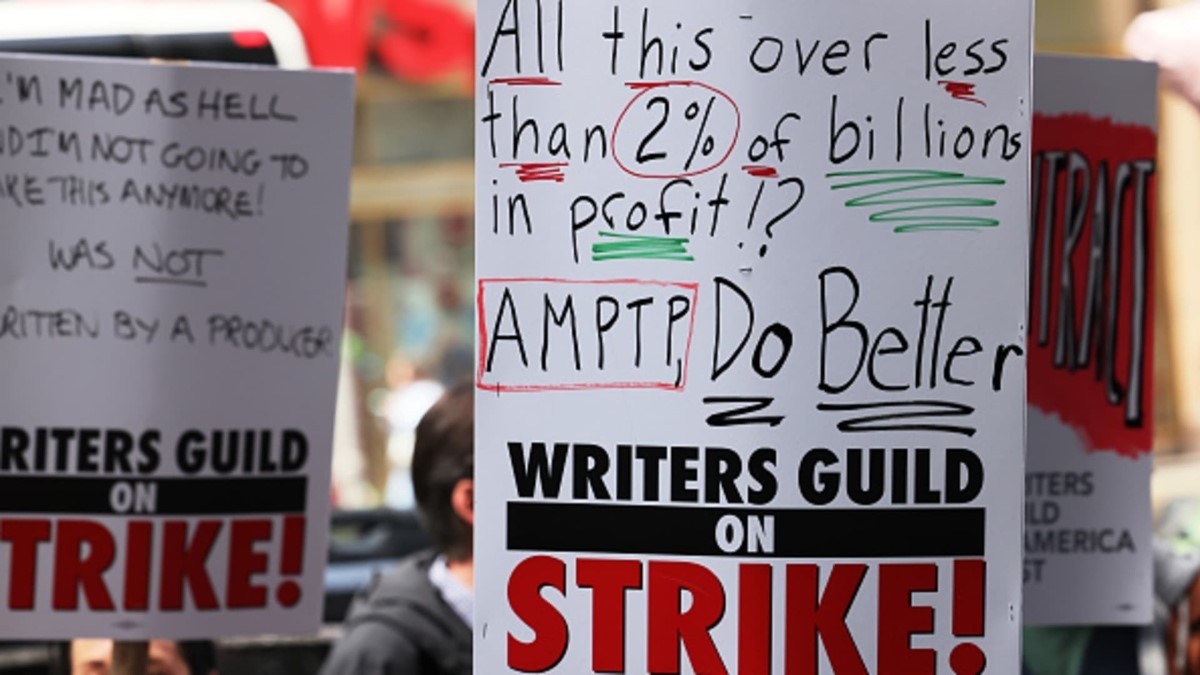The Hollywood writer’s strike has been at the forefront of all the news and media outlets for days. As many popular shows come screeching to a halt, the confusion around the strike grows. Many viewers wonder what caused the strike, and what, exactly, the writers are asking for. Well, we are glad you asked, because we just happen to have dug deep to find the answers. Here is what it will take to get our favorite shows back on the air.
Where would shows be without the writers? Well, this week has made the answer pretty clear — nowhere. The current Hollywood writer’s strike is causing one of the biggest disruptions to television that we have seen in our time, secondary only to the pandemic. Shows have come to a halt, station employees sit twiddling their thumbs and no one seems to know when it will all end and the regularly scheduled programming will resume. The Writers Guild of America (WGA) is in charge of representing over 11,500 screenwriters, and it seems they are all one united front against the stations and the unfair contracts they allege they have been given.
The writers are asking for fair pay for their contributions to shows — including royalty payments known as “residual payments” — most especially from streaming services. The industry’s move to streaming services has affected licensing issues, which in turn affect how and when the writers receive payments.
There are also accusations of unfair employment practices in Hollywood, including creating “mini rooms” for writers. The practice includes hiring a small group of writers to create a show and write several scripts for it. As the show has not been officially picked up by a network, the writers are given less money than they would have been in the larger writers’ rooms. Then if the show itself is not picked up, the writers are summarily dropped, leaving them jobless with no notice and no options. Also, even if the show is picked up, all of the original writers are not necessarily kept, yet those plans are not forthcoming to the staff until the last minute. This practice also leaves the show short-staffed on writers, making them work harder for less pay. “Mini-rooms” is a shady practice at best, and keeps writers in the dark with little to no options or negotiating power. According to the New York Times, the WGA is calling for “mandatory staffing” and “employment duration” meaning making sure shows are appropriately staffed and writers are guaranteed at least a minimum predetermined length of employment.
Another big issue the WGA has is the latest implementation of artificial intelligence (AI) in writers’ rooms. Artificial intelligence is able to take what a writer has written and run with it, meaning it can mimic the style, voice, and flow of a writer, creating similar copy and even scripts. While many feel AI leaves something to be desired in the writing arena, many networks are beginning to use AI in filler areas of scripts, the areas that don’t need to be particularly witty or complicated. However, this practice could encroach on writers’ payment, royalties, and general employment. In fact, this is the area that seems to be one of the biggest sticking points in the strike as networks continue to refuse to agree to limit or eradicate the use of AI.
The networks respond with comments of it “being an ongoing discussion,” but WGA member Christopher Keyser, writer of the hit show Party of Five, responds “Go pound sand.” He feels this is the same discussion the networks have had over and over with no real answers or assurances. In short, the networks refuse to agree. Because of this big sticking point, the New York Times feels this strike is “going to be a while.”
Not exactly good news for fans of the affected shows, some of which include Stranger Things, Hacks, Still, And Just Like That, and many more. It’s a very tense situation in Hollywood right now, with many celebrities speaking out with their opinions of the strike. Even actress Jennifer Coolidge used her award speech to defend the strike. Yet even with all the publicity around it, the strike just won’t seem to resolve. Regardless of where each person stands on the individual issues, one thing is certain, some things in Hollywood have to change. So what will get the shows back on the air? It pretty much comes down to more money, less AI, and more clarity, transparency, and equality around employment practices. Is that really so much to ask Hollywood? Sheesh.
